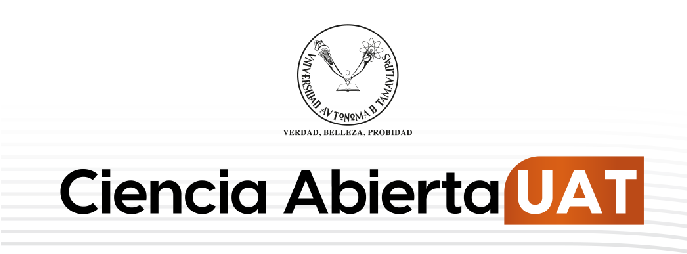Publication Ethics Policy
The journal's Editorial Policies seek to guarantee scientific integrity, transparency, impartiality, and respect for ethical principles throughout the editorial process, from the submission of the article to its publication.
The journal editorial policies are described below, with special attention to the policies associated with the authors, reviewers, and the editor:
- Policies for Authors:
-
Originality and plagiarism: Authors must guarantee that the work submitted is original and has not been previously published or is under review by another journal.
-
Declaration of conflicts of interest: Authors must declare any conflict of interest that may influence the results of their research or the interpretation of the data. This includes financial or professional links or other interests that may have influenced the work.
-
Attribution of authorship: Authorship should reflect a substantial contribution to the design, execution, or interpretation of the work. Authors should accept responsibility for the research and ensure that all persons who have contributed significantly are included as authors. The corresponding author must explicitly state the author's details and their contribution to the manuscript in their Authorship sheet.
-
Review and modification: Authors should be willing to revise their manuscript according to the recommendations of reviewers and editors. In addition, they should make efforts to address all suggestions for improvement to ensure the quality of the work.
-
Ethics in research: Authors must follow ethical standards in the conduct of their research. Procedures involving animals should be carried out in accordance with the corresponding ethical standards and, preferably, declared as such in the manuscript. If the authors have a letter of ethical approval from their institution or other entity, it should be mentioned in the manuscript.
-
The corresponding author should explicitly state in their Cover letter that "On behalf of all the authors, I confirm that the work has not been previously published, nor is it being considered for publication in another journal; I also confirm that the work has been approved by all the authors and by the institution where it was carried out. Furthermore, I confirm that the manuscript does not include any copyrighted figures or, if it does, we have permission to publish them".
- Policies for Reviewers:
-
Confidentiality: Reviewers must maintain the confidentiality of the manuscripts they review, not disclosing or using the information in the articles before publication. This includes not sharing the content with third parties without the explicit permission of the editors.
-
Impartiality and objectivity: Reviewers must conduct their evaluations impartially and objectively, basing their decisions solely on the scientific quality of the article and its relevance to the field. They should not allow their personal opinions or beliefs to affect their judgment.
-
Constructive evaluation: Reviewers should provide constructive and detailed comments to help authors improve their work. They should point out the article's strengths and weaknesses clearly and respectfully.
-
Timely evaluation: Reviewers must meet the deadlines established for article reviews. If they are unable to complete the review within the agreed time, they should notify the editor as soon as possible to avoid delays in the editorial process.
-
Declaration of conflicts of interest: Reviewers must declare any possible conflict of interest related to the article they are evaluating. If they have any connection with the authors or the article's subject that could influence their evaluation, they must refrain from reviewing the manuscript.
-
Handling evidence of misconduct: If reviewers detect any indication of research misconduct, such as plagiarism, data falsification, or failure to comply with ethical standards, they should inform the editor.
- Policies for the Editor:
-
Impartiality and transparency: The editor must be impartial in making decisions about articles submitted to the journal. Editorial decisions should be based on the quality of the work and its suitability for the journal, not on personal bias or conflicts of interest.
-
Confidentiality: The editor must maintain the confidentiality of the manuscripts and not disclose information about the work submitted to anyone outside the editorial process. This includes information about the authors and the content of the article.
-
Responsibility for editorial decisions: The Editor-in-Chief is responsible for the final decision on whether to accept or reject articles. This decision should be based on the reviewers' recommendations, the scientific quality of the work, and its relevance to the journal's audience.
-
Handling conflicts of interest: The editor should withdraw from the editorial process if they have a conflict of interest related to a particular article. They should ensure that the process is fair and equitable.
-
Compliance with ethical standards: The editor is responsible for ensuring that ethical standards are met at all stages of the editorial process, from manuscript receipt to publication. He or she must also ensure that the journal does not allow the publication of fraudulent articles.
-
Transparency in the editorial process: The editor must be transparent with authors and reviewers about the editorial process, including the evaluation criteria and handling conflicts of interest.
-
Review of ethical cases: If ethical problems arise about published articles (for example, accusations of data manipulation or plagiarism), the editor should investigate and take the necessary corrective actions, including clarifications and/or corrections by the author, retractions, or the withdrawal of the article.







